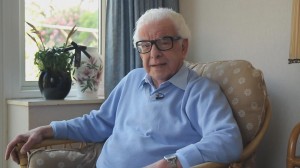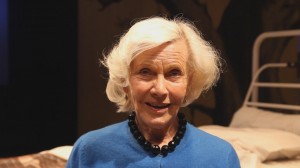
More than one million(i) stroke survivors (89%) live in fear of having another stroke and are scared to go out alone (79%), leaving them afraid for their recovery (79%) in the aftermath of their stroke, according to a leading national charity. The Stroke Association’s startling new findings(ii) show how people’s recoveries are under threat from fear itself.
The charity’s latest research (of over 1,000 stroke survivors) also reveals the hidden barriers that people can face after stroke, often too scared to talk to anyone about:
- One in five (20%) stroke survivors said they kept their fears to themselves and didn’t talk to anyone
- Over a third (37%) of these stroke survivors said they didn’t want to worry anyone; they were too afraid (27%) or didn’t want to sound stupid (26%) by talking about their fears.
On top of dealing with these fears and concerns, the study also shows that many stroke survivors are facing their recovery alone. This leads to a bleak attitude to recovery with almost nine in ten (88%) survivors afraid they won’t get better and four out of five (80%) fearing they would get sent to a care home when they first had their stroke. Fear prevents people from getting out and about and meeting others, two of the key factors that stroke survivors have said are integral to their recovery.
Juliet Bouverie, Chief Executive of the Stroke Association, said: “These stats are truly shocking. I am heart-broken to hear that stroke survivors felt they couldn’t speak to those closest to them about their biggest worries and fears. When you live in isolation, too afraid to leave the house and are unable to ask for help, your motivation can disappear, and can leave you in a very bad place emotionally – feeling like a prisoner in your own home.
“It takes a team to rebuild lives after stroke. When stroke strikes, part of your brain shuts down, and so does a part of you. Recovery is tough, but with the right specialist support, the brain can adapt after stroke. I’ve heard countless stories, and know countless people who, after many years continue to make remarkable recoveries. The first step to eliminating fear is to ask for help and support. If you are a stroke survivor, this could mean speaking to your doctor or social worker to get some answers. If you know a stroke survivor, reach out, ask them how they’re feeling. No one should have to live their life in constant fear.”
The Stroke Association’s research also found that:
- Only 18% of stroke survivors were confident that they would get enough support to make a good recovery
- 87% of stroke survivors said they feared losing their independence
- 81% of stroke survivors said they were afraid they wouldn’t be able to look after their children or parents.
Juliet continues: “I was horrified to find out that there are still many people who feel helpless. People are missing out on the life they could have – this must change. Don’t be afraid to ask questions about your health. We want everyone to know that you can rebuild your life after stroke. Every stroke is different and so is every recovery. It can take years to adjust to a new normal.
“The Stroke Association’s Helpline is for everyone affected by stroke. There are no stupid questions. If you are worried about anything, call 0303 3033 100 and get support from one of our trained helpline staff.”
For more information about Rebuilding Lives or about stroke, visitwww.stroke.org.uk/rebuildinglives.

